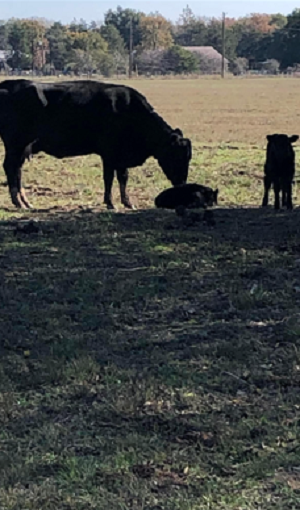November 27, 2023 – As a cow-calf herd goes into the fall season after a hot, dry summer, the entire herd may be stressed. Excessive heat, short grass and low water tanks stress cattle and make them more susceptible to diseases. Unsanitary conditions and abrupt diet changes also can lead to illness, as can other circumstances of stress. At the end of the summer, the cows are likely pulled down to a thin body condition from nursing the calves, the bulls worn out from breeding, and the calves shocked from weaning. A pulled-down cow is at risk of contracting many types of diseases.
When cattle are stressed, they become thin and their immune systems are suppressed. Germs that are dormant in the tissues and organs of the cattle can break out of dormancy, multiply and cause outbreaks of diseases and disorders, such as: a) Clostridiosis (clostridial blackleg group), which is a group of highly fatal muscle, liver and intestinal diseases b) Leptospirosis (lepto), a bacterial disease that can cause abortions, stillbirths and weak newborn calves as well as jaundice, high fever and usually death c) Anaplasmosis (anaplas), an infectious disease that causes anemia, weakness, fever, lack of appetite, constipation, abortion and sometimes death d) Viral and bacterial pneumonia, diseases of the lungs e) Viral and bacterial abortions, infectious diseases that cause death of the embryo or fetus f) Bacterial pyometra, a disease of the uterus G) Bacterial diarrhea, a gastroenteritis.
When any one of these health problems is recognized in a stressed cow-calf herd, it can be assumed the cattle were carriers that broke with the disease even without a recent exposure to the disease agent. The diseased cattle may have been exposed and become infected several months before the time of stress precipitating the disease in the cattle with clinical symptoms. Some cattle may become emaciated with “bottle-jaw” (a soft swelling under the jaw) and advance to a “downer” stage, becoming unable to rise. In many cases, the cattle may die. Producers can prevent or minimize health problems in the fall and winter by reducing the stresses caused by inadequate nutrition, sudden feeding changes and poor sanitation.
For more information on this or any other agricultural topic please contact the Hopkins County Extension Office at 903-885-3443 or email me at [email protected].






